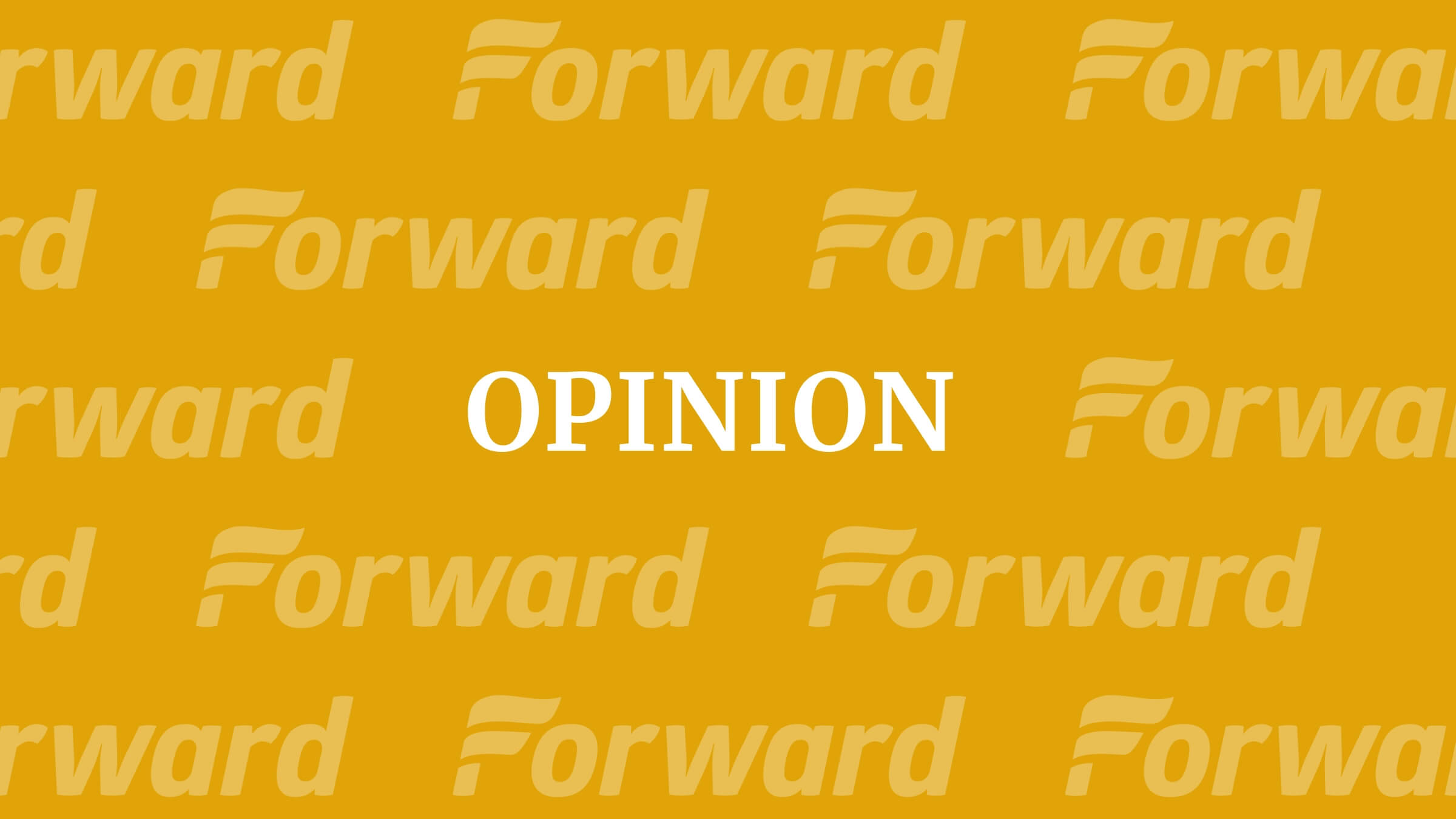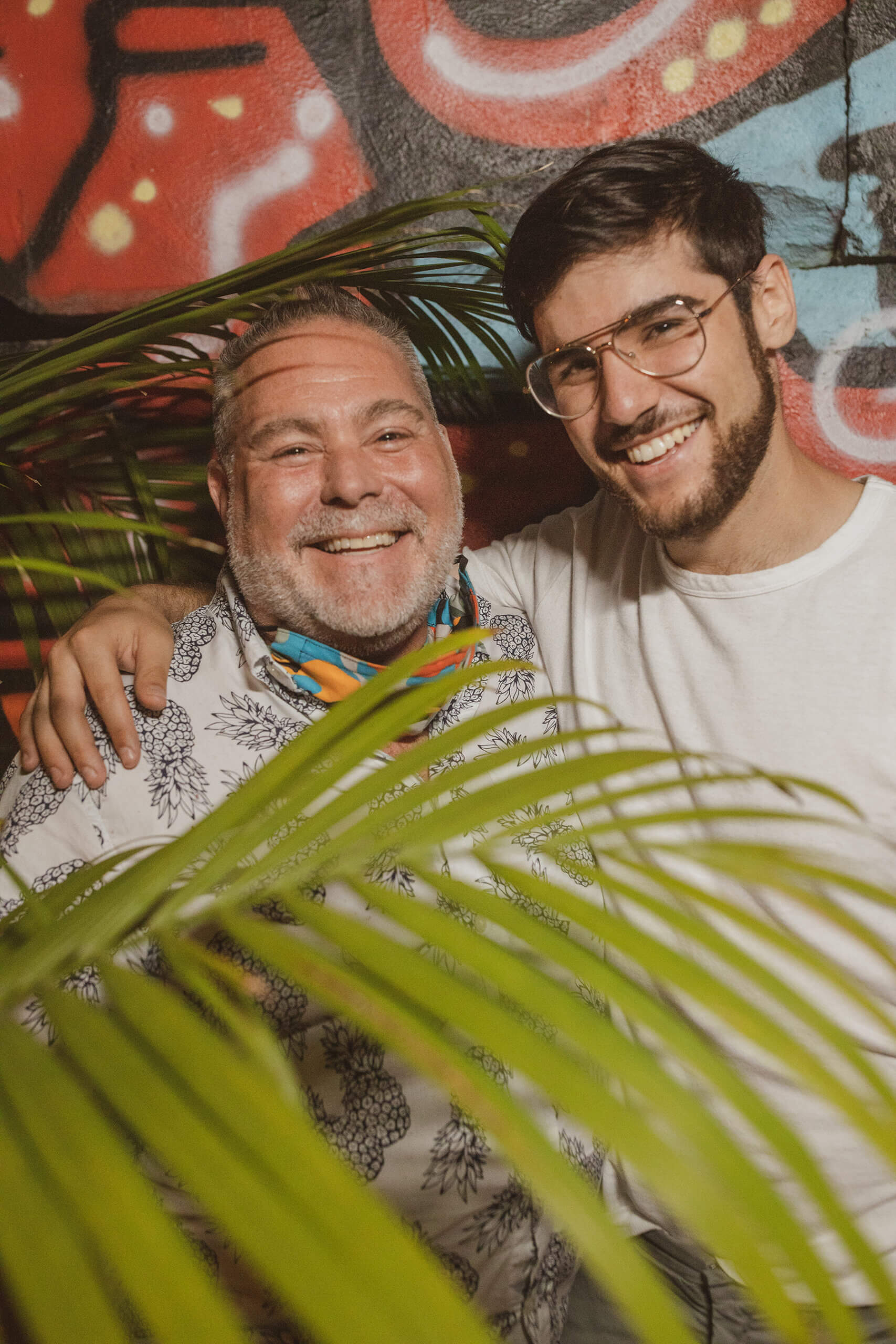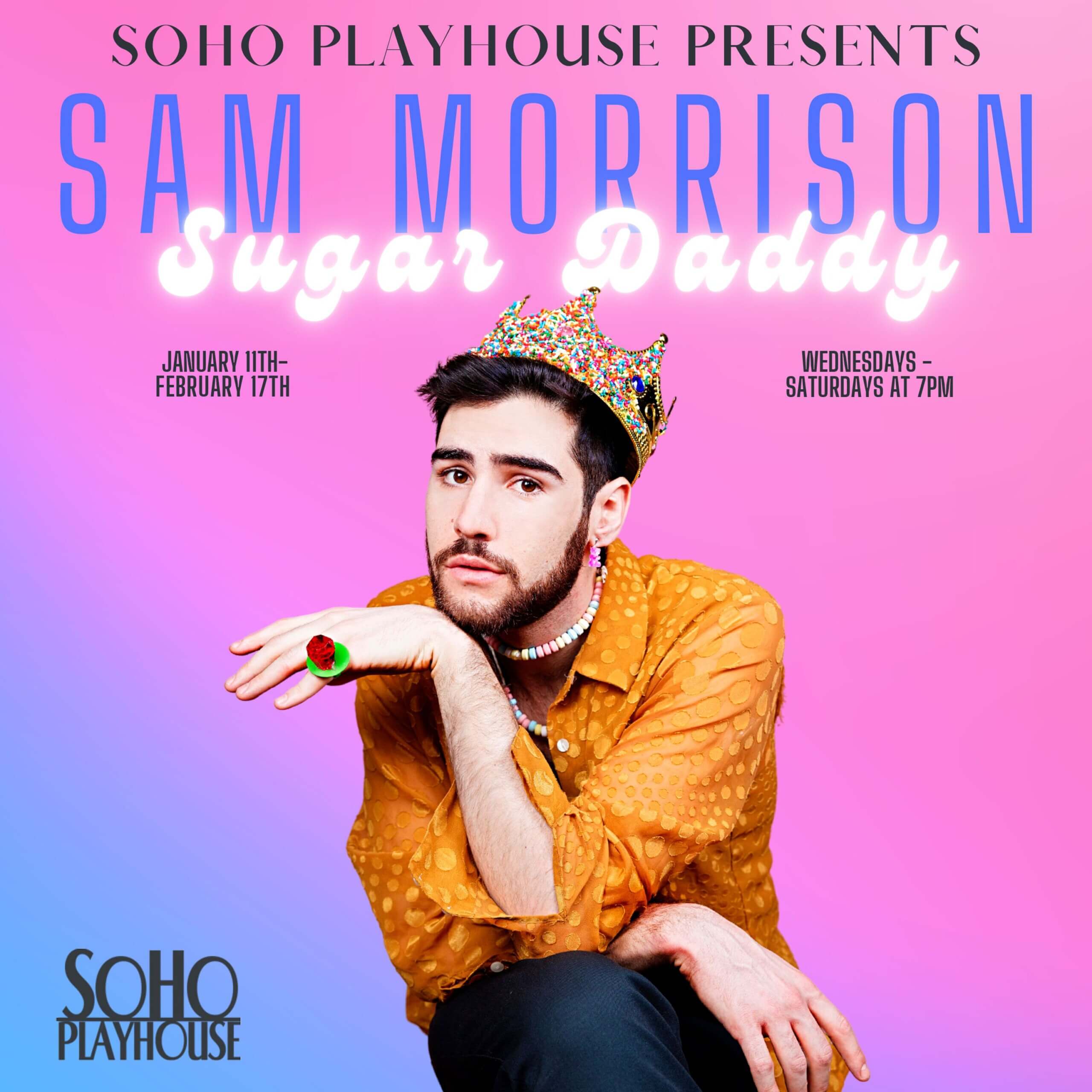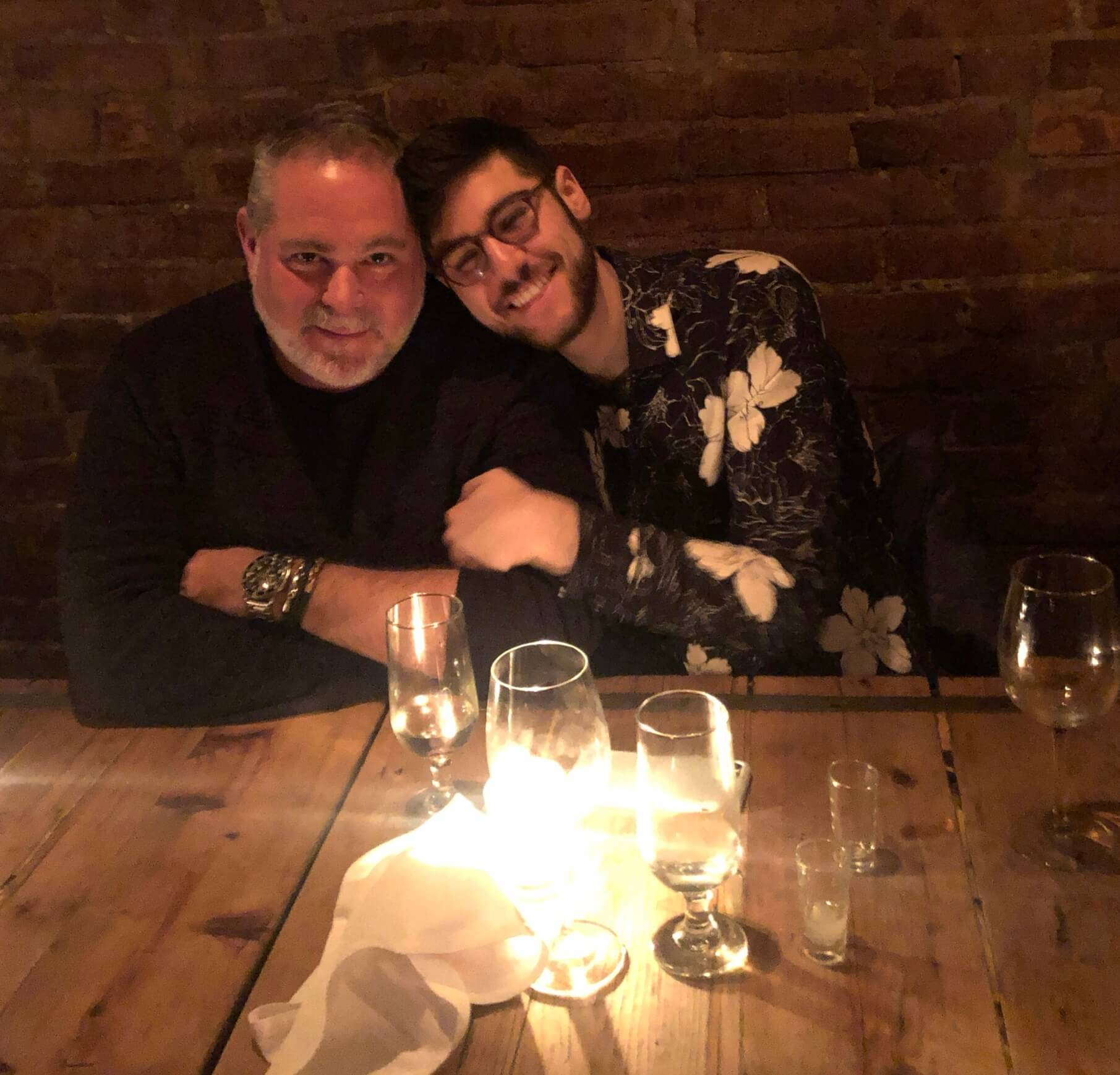A Jewish comedian’s new special is about his partner’s death from COVID. It’s hilarious
‘Sugar Daddy’, the latest from Sam Morrison, is a raucous, raunchy and deeply moving portrayal of grief, sex and love

Sam Morrison. Photo by Arin Sang-urai
The first time Sam Morrison tried to do stand-up after his boyfriend’s death, it didn’t go well.
It was just six to seven months after Morrison, then 27, had lost his partner of three years to COVID-19. He first tried to process his loss through comedy, but it was far too soon.
“The big thing about doing jokes like that is that the audience has to know that you’re OK,” Morrison told me, “so that they’re comfortable laughing at your experience. They can sense your discomfort or even your pain.”
Barely a year and a half later, Morrison has succeeded in the extremely Jewish act of pressing his finger deeper into the sadness in order to mine laughter, and meaning, from it.
Before tragedy upended his life, the gay Jewish comedian from Sarasota, Florida, was already a known entity on the comedy scene. His 2019 debut at the Edinburgh Fringe Festival, Hello, Daddy, was a frank exploration of his sexual journey and attraction to older men and bears, a term that Morrison defines as “a subculture in the gay community of generally larger, hairier men that exist outside of the societal ideals of beauty.” In 2020, he prepared to do a comedic history of gay founding fathers (Founding Daddies) but the performance was canceled, like the rest of the world, due to the coronavirus pandemic.
By the time Morrison was contemplating the 2022 Festival, his circumstances had drastically changed. His beloved partner had died of COVID, and he himself had been diagnosed with Type 1 diabetes. A show about gay 18th-century American political figures suddenly didn’t feel right.

“It felt really inauthentic to be going through this grief and thinking about this all the time, and then to not talk about it on stage,” Morrison said.
And talk about it, he now does.
Sugar Daddy came about as a natural, cathartic extension of his own way of metabolizing his grief. “What is trauma but unmonetized content?” Morrison jokes near the beginning of the show, mocking the idea that in our current media landscape that all suffering is fodder for entertainment. Recent best-selling memoirs, like Jennette McCurdy’s I’m Glad My Mom Died and Michelle Zauner’s Crying in H Mart, have also transformed profound trauma, abuse and death into fertile and successful creative ventures. McCurdy now has a two-book deal at Random House following the success of her book, and Zauner’s band, Japanese Breakfast, plays stadium arenas.
Cynics would perhaps say that McCurdy, Zauner and Morrison have profited off of their trauma. But the reality is that when one is leveled by grief and pain, there is the greatest potential for vibrant new growth.
“I was bombing a lot with grief material at first,” Morrison said plainly. “It’s a very difficult thing to get people comfortable laughing at that, and it took a long time to figure out how to do it. But if you can do that, it’s a very ripe subject.”
The theater’s basement bar before curtain call for Morrison’s show felt like a cozy cocktail hour in a local gay bar. The audience was overwhelmingly queer, and when Morrison meandered onstage in a teal sleeveless blouse, tight jeans and cranberry Doc Martens, the applause was raucously intimate, as if your friend had just destroyed a karaoke song.
Morrison acidly questions our culture’s discomfort around death and dying, including the platitude that “there are no words” to say when someone dies. “Really?” he says, hip cocked. “There’s no words for the thing that happens to literally everyone in the world ever?”
Morrison opens the show by welcoming the audience “to my grief group,” and introduces himself as an “old queen” (he is 28 years old). The set was gut-busting and explicit. He waxed nostalgic about life before he’d experienced the tragedy of losing his boyfriend, “being jerked off on the dance floor and fisting ketamine the way God intended.” He tells the sweetly raunchy story of meeting his deceased boyfriend Jonathan at Provincetown Bear Week during a search for shelter in a hurricane, falling for his belly laughs and kind heart. “He had no mental illnesses!” Morrison laughs, “As a Jew, it was shocking.”

Sugar Daddy takes its name not from the trope of a wealthy older person that a younger one dates for their wealth (“It’s offensive because Jonathan did not have money!” Morrison insists during the show), but for Morrison’s glucose monitor. As part of coping with both the loss and his new diagnosis, Morrison likes to imagine the monitor as his late boyfriend, ever present on his body, monitoring what he needs to survive.
His diabetes diagnosis occurred soon after his partner’s death, a physiological trauma response to intense grief that I, and Morrison, didn’t know was possible. “I didn’t expect my pancreas to be like ‘Girl, I gotta go,’” he says, sashaying across the stage.
I have been to more than a few one-person shows where the artist did not have enough distance from personal material to make it work on stage. Instead of watching artistic catharsis, you feel as if you’ve walked into someone’s therapy session. In Sugar Daddy, Morrison achieves this needed distance with the rapid-fire jokes, but does not shy away from slowing down, expressing sorrow or getting mildly choked up on stage. Near the top of the show, Morrison assures us that this is the easiest show he’s ever done; he loves Jonathan, and he loves to talk about him. It’s a smart and moving way to assuage our concerns about weeping with laughter as, for example, he describes a deeply awkward Apple Store employee trying both to comfort Morrison and to preserve photographs from Jonathan’s computer: “He’s safe with us in the cloud!”

“When I was going through it, I hated that person,” Morrison reflected to me as I told him the Apple Store moment was one of my favorite parts. But with time, he found the humor in these painful moments. “Death is one of those things that we don’t talk about and are uncomfortable about, and anything untouchable is funny.”
A poignant example is the multiple grief support groups he’s in, where he is by far the youngest participant. These groups are not somber affairs, Morrison explains, but opportune places for finding sexual partners. “I used to bottom, I just wheelchair now,” he says with a wink.
“I’m in three different grief groups because I like competition,” he announces, imitating a woman who remembers her dead husband with a weekly glass of wine in his favorite glass. “‘Oh how nice, your little grape juice thing. See, my dead boyfriend is literally in my body, that’s how much I love him,’” Morrison says, gesturing to his glucose monitor.
Morrison’s last months with Jonathan together during the beginning of the coronavirus pandemic were an odd mixture of panic and a gift. In lockdown at Morrison’s grandmother’s house in Rockland County, they spoke a nonsense gibberish language to each other and watched a home video of Morrison’s bris. When Jonathan ultimately was admitted to the hospital, a nurse assured Morrison that he’d be fine: “‘He’s young,’ she said. ‘You hear that babe? In the ICU, you’re a twink!’”
I asked Morrison if he had observed any Jewish rituals around death, including shiva, when his boyfriend died. He shook his head sadly. “COVID ruined everything. We did a Zoom celebration of life, but that was it, and I’ve always wanted more.” He paused, thinking. “Maybe that’s the reason I did this show, that it never felt right, it never felt like we honored him enough.”
I’m certain that Morrison has allowed us into the darkest moments of his life, yet the sweetest he’s saved for himself and Jonathan.
Sugar Daddy is at the SoHo Playhouse until Feb. 17. Tickets can be purchased here: https://www.sohoplayhouse.com/sugar-daddy
To contact the author, email [email protected]















